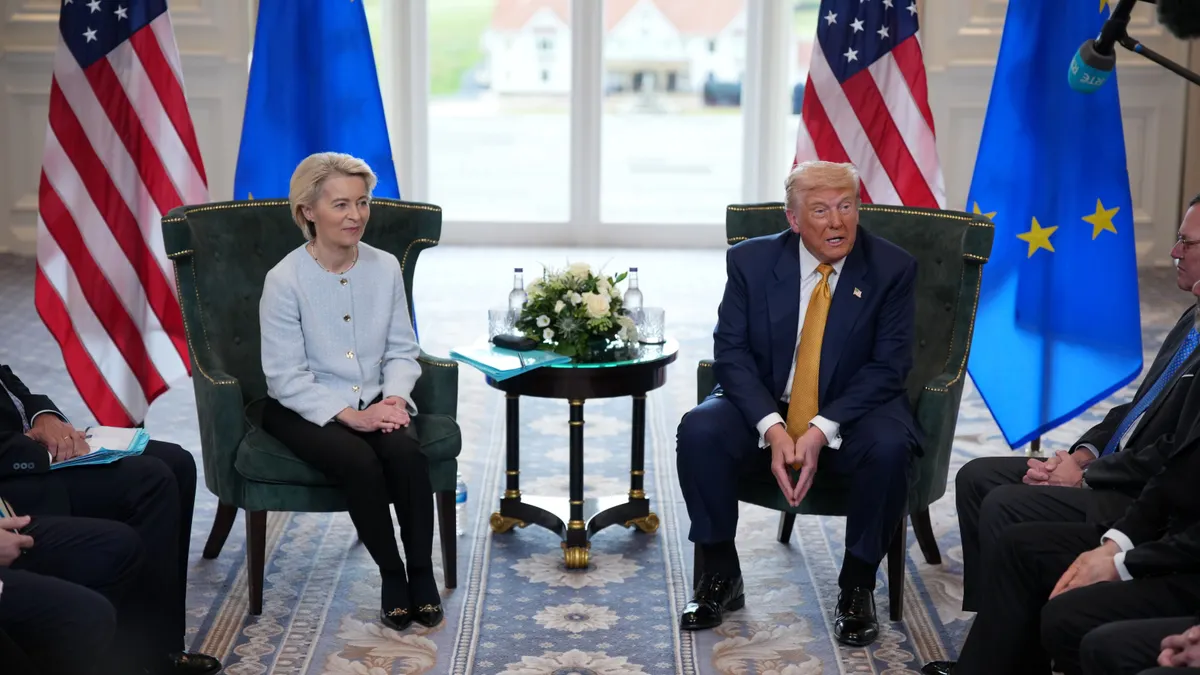Dive Brief:
- MedTech Europe has warned tariffs on transatlantic trade risk disrupting critical supply chains, affecting patient care and healthcare resilience.
- The trade group made the warning Thursday in response to the publication of a joint statement on trade and tariffs by the U.S. and European Union.
- MedTech Europe said the statement lacks tariff relief for medical technologies and their essential inputs. The trade group wants both sides to eliminate tariffs for medical technologies to protect patients.
Dive Insight:
The U.S. and EU established the framework for the deal in July. At that time, negotiators agreed to a 15% tariff on most products imported into the U.S. from the EU. However, the lack of detail left scope for the medtech industry to lobby for exemptions.
MedTech Europe said early this month that tariff-free transatlantic trade in medical technologies is critical, both for the economy and for patients.
After seeing more details, the trade group said that “alarmingly” the deal is missing “much-anticipated tariff relief for medical technologies and their essential inputs.” The omission means that as of Aug. 8, a 15% tariff applies to medical technologies imported from the EU to the U.S.
“These protectionist trade measures risk disrupting critical supply chains, which in turn will have negative implications for patient care, undermining healthcare resilience and harming one of Europe’s most critical and innovative sectors,” the trade group said in a statement.
The trade group is focusing on the healthcare implications of any disruption to supply chains, ending its statement with the line “patients cannot be collateral damage in trade tensions.”
Siemens Healthineers and Philips, two of the medtech companies most affected by tariffs on EU exports, reset their expectations for the impact of the levies after the trade framework was established in July. As such, the companies’ latest forecasts are based on a 15% tariff. Siemens predicted an impact of up to 250 million euros, and Philips forecast a tariff hit of up to 200 million euros.











